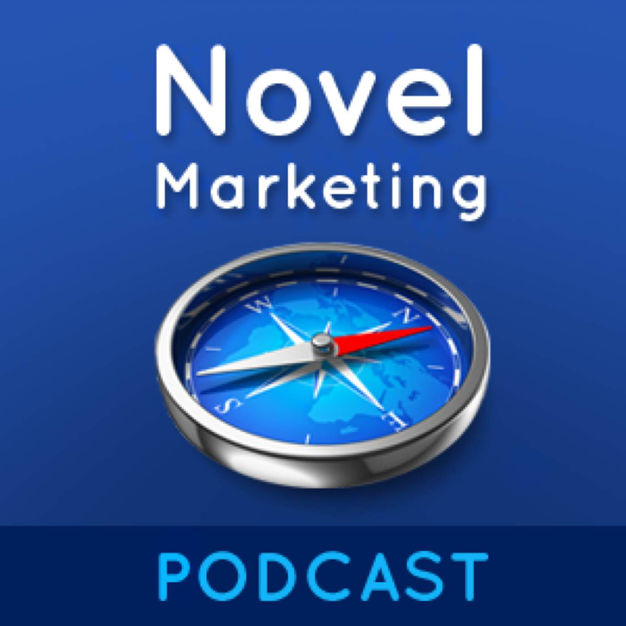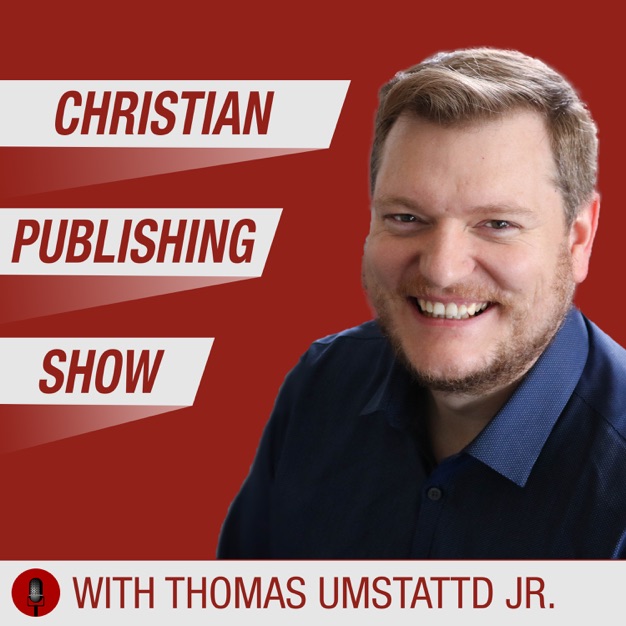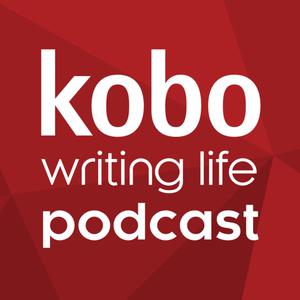
Novel Marketing
Thomas Umstattd Jr. & James L. Rubart
This is the show for writers who hate marketing, but still, want to become bestselling authors. Our goal is to make book promotion fun and easy by connecting you with innovative marketing strategies that work. Hosted by Thomas Umstattd Jr. and James L. Rubart.
- 35 minutes 29 secondsNetworking for Authors: How to Build Relationships Without Being Awkward
Many authors feel stuck. They're toiling away in obscurity, and none of their promotion efforts seem to go anywhere.Success in publishing is as much about who you know as what you know. And sometimes, the lack of knowing the right people keeps you from finding success.We still live in a world that's run by human people, and your connection to those humans will lead to your success. If the word networking makes you feel awkward, you need to change your mindset.Networking is about relationships.So, how do you network with other authors, influencers, industry professionals, and customers at the bookstore? And how do you network in a way that makes you and the person you're connecting with feel amazing?I asked Steve Garrity. He's spent more than 20 years in sales and leadership. He coaches and develops others to thrive, and he is the author of the upcoming book Greatfruit: How Cancer Led to Living a More Fruitful Life. His book is currently live on Kickstarter and has raised over $10,000 in preorders.In this week's episode, you'll discover
· How to change your mindset about networking
· How to stop worrying about what to say when meeting people
· Tools and tips for building and maintaining relationships in your networkListen in or read the blog version of this episode to gain the courage and tools to connect with people and bless them.18 December 2024, 8:00 am - 37 minutes 24 secondsProject Management for Authors
Are you feeling overwhelmed by the endless task of writing, publishing, and marketing your book? From deciding which software to use for writing to figuring out how to keep track of all the characters in your story, the choices can feel paralyzing, and the number of things that need to be done can be very overwhelming.
Besides your writing tasks, you have the business side of things: scheduling meetings, tracking your finances, recording book sales, running ads, and figuring out if your business is actually profitable.
If just thinking about your to-do list is raising your blood pressure, it's time for you to take control and reduce your stress by learning a technique called project management.
In this week's episode, I spoke with Lorna K. Bailey. She's been an executive author's assistant since 2014, and she's helped many top authors grow their sales and increase their focus on writing.
We talked about
· How to organize and prioritize your to-do list
· The benefits and differences between digital and paper calendars
· Tips for effective scheduling that helps you achieve your goals
Listen in or read the blog version to discover how project management techniques can help you tackle the overwhelming task of writing, publishing, and marketing your books.11 December 2024, 8:00 am - 54 minutes 22 secondsHow to Build a Rejection Proof Platform in 2025
Your author platform is your ability to spread the word about your book. As an indie author, your platform is directly linked with how large your book launch can be. Bigger platforms lead to bigger launches. All else being equal, traditional publishers always prefer large-platform authors to authors with no platform.
So, how do you grow your author platform?
This week’s episode is a webinar I recently presented.
You’ll learn
· Two myths about author platform
· What you’ll need to build an enduring platform
· Answers to three common questions from authors about email, social media, and money.
Listen in or read the blog post to learn why having a solid author platform is crucial for indie and traditional authors. Find out how to build a platform that will give your book the best chance for success.25 November 2024, 7:00 pm - 17 minutes 18 secondsContact Page Dos & Don’ts for Authors
Is your website’s Contact page serving your readers and web visitors?
In the past, authors simply shared their email addresses on their websites. But that opened the door to a flood of spam, which drowned out real messages from readers.
Connecting with your readers is essential to building your readership, so you can’t simply remove your email address from your website. But how do you create an effective Contact page that helps readers connect but keeps spammers out?
In this week’s episode, we’ll discuss the best practices for creating a contact page that truly works.
You’ll learn- Which “Contact” page elements are necessary
- How to help readers to contact you by their preferred method
- How to keep spammers out of your inbox
Listen in or read the blog version to learn how to create a successful author contact page and form that helps readers and influencers find you and makes spammers leave you alone.
20 November 2024, 8:00 am - 55 minutes 23 secondsHow to Worldbuild Your Book into a Bestseller
Choosing the right setting can supercharge your book sales. Some people read a book just for its setting. A good setting can lead to spin-off products like board games, art books, coloring books, calendars, comic books, and even movies.
Setting not only turns people on to a story, but it also turns people off.
Every author must answer the question, “How can I place my story in a setting that readers want to spend time in?” And the answer to that question is an art and practice called worldbuilding.
In this week’s episode, you’ll hear from Seth Ring, an author and expert worldbuilder. He co-hosts the WorldCraft Club podcast and teaches people how to build the worlds for their stories.
You’ll learn- Three techniques for building a captivating world
- How to choose the right setting for your readers
- How setting can impact sales and reader enjoyment
Listen in or check out the blog to discover the power of creating immersive settings that captivate readers, leave a lasting impact, and boost book sales.
13 November 2024, 8:00 am - 30 minutes 40 secondsHow to Run a Local Book Festival
Sometimes in marketing, it pays to zig when everyone else is zagging. In this digital age, when authors race to do everything online, it's easy to forget the magic of face-to-face interactions. Personal connections can transform your relationship with your readers and fellow authors.
A book festival is a fantastic way to meet with readers and writers at the same time in real life. But what is a book festival, and how can you organize one?
In this week's episode, I asked Dave Cohen to talk with us about book festivals. He's a British writer with more than four decades of experience writing comedy for the BBC. He saw a void in his community and stepped up to the plate for readers and authors_._ You'll learn
· What a book festival is
· Three types of book festivals (and which might fit your book best)
· How the format could boost your book sales
If you've wished for an in-person venue to sell books and connect with readers and authors, listen in or read the blog version and see how you might be able to grant your own wish.6 November 2024, 8:00 am - 1 hour 10 minutesHow to Write Stories Readers Will Love by Knowing the Zeitgeist
As Yoda says, “Difficult to see the future is.” But difficult is not impossible. Causes have effects, and the more you have a sense of the rhythms of the past, the better you can sense the future.
If it takes you two years to write a book, you owe it to yourself to ask, “What kinds of books will be popular in two years?” Reader preferences change over time, but sometimes they change rapidly. If you don’t keep up, you may get stuck writing a book people no longer want to read.
So, how can you determine what will be popular in a few years?
In this week’s episode, I speak with Alexander Macris about how history’s cyclical patterns can give us clues about what types of literature will resonate in the future. You’ll learn- Why certain themes and plots are failing miserably in our current moment
- Where to find past ideas that are likely to resonate in the future
- Why certain themes resonate at different times in history
Listen in or read the blog version of this episode to get a head start on writing a book with themes that will resonate with readers in the future.
30 October 2024, 7:00 am - 21 minutes 22 secondsHow to Use Reverse Coupons
Has inflation eaten away at your book profits? Perhaps you want to start advertising and need some margin. Or maybe readers are not taking you seriously with your book's current low price.
You need to raise the price of your book, but how should you do it?
Most authors raise prices quietly. One day, the price just goes up, and they hope no one notices. But that approach is a massive mistake and a missed opportunity.
A future price increase is a rare opportunity, and in this week's episode, you'll learn how to- Increase your price the right way
- Gain favor with readers by announcing a price increase
- Make the current price seem like a bargain
Listen in or read the blog version of this episode to discover how you can do a kindness for your readers, help them take action, and sell more books at a higher price with a reverse coupon.
23 October 2024, 7:00 am - 32 minutes 38 secondsHow to Write Enduring Bestsellers with the Two-Act Chiastic Structure
The last time I visited Barnes and Noble, I marveled at the comic book section. Western comic books only filled a couple of shelves, while around the corner, there was an entire aisle of manga comic books.
I wondered, “Why is Eastern manga so much more popular than Western comic books from DC and Marvel?” As I investigated, I discovered an interesting and shockingly ancient answer.
Western storytelling is typically based on the three-act structure, which dates back to Aristotle. But one ancient story structure that dates back to the time of oral storytelling and is still popular in the East, yet it appeals to modern Western readers.
Many Western storytellers have rediscovered it and used it to write some of the most enduring bestsellers in the English language, including Pride and Prejudice, Goodnight Moon, and Dracula.
In this week’s episode, we’ll discuss- A story structure based on only two acts
- How to create a two-act structure for a sentence or a series
- How this structure might rescue a story you’ve been struggling to finish
Listen in or check out the blog post version of this episode to learn about this ancient story structure and how can you use it to make your book more appealing to readers.
16 October 2024, 7:00 am - 43 minutes 37 secondsThe Strategy Behind Reader Super Magnets
Reader magnets are like real magnets. Sometimes, they aren't very magnetic, and other times, they're so magnetic that we can rapidly grow an email list of tens of thousands of readers.
A reader magnet is supposed to magnetically draw readers onto your list so that when you have a book to announce, lots of folks are ready and eager to learn more or buy.
But what if your reader magnet doesn't seem to be working?
In this week's episode, I interviewed Jonathan Shuerger to learn how his company, The Strategic Author, can help authors target their ideal market and create super magnetic reader magnets.
You'll learn- How to gather intelligence on your target reader
- What questions you should ask to gather useful data
- How to use that intel to create a reader magnet they'll love
Listen in or check out the blog post version of this episode to discover why your reader magnet might not be having the impact you want and how you can make it more attractive.
9 October 2024, 3:00 pm - 31 minutes 16 secondsWhat to do When Book Sales Start Slipping
Are your book sales starting to dip a bit? Perhaps your book sales were once great and are now starting to fall. You may see this drop in sales for several reasons, but you don’t have to stand by and watch them drop indefinitely.
Most bestselling books see their highest sales during the pre-order period, followed by the launch month, and then experience a slow, steady decline. But you can extend a book sales lifecycle.
In this week’s episode, we’ll talk about- Why your sales may be declining
- Which sales problems you can fix (or not)
- How to reinvigorate your sales (sometimes with very little extra investment!)
Listen in or check out the blog post to discover why your sales might drop and get a robust list of marketing strategies to boost them back up.
2 October 2024, 7:00 am - More Episodes? Get the App
Your feedback is valuable to us. Should you encounter any bugs, glitches, lack of functionality or other problems, please email us on [email protected] or join Moon.FM Telegram Group where you can talk directly to the dev team who are happy to answer any queries.
 Christian Publishing Show
Christian Publishing Show
 Kobo Writing Life Podcast
Kobo Writing Life Podcast